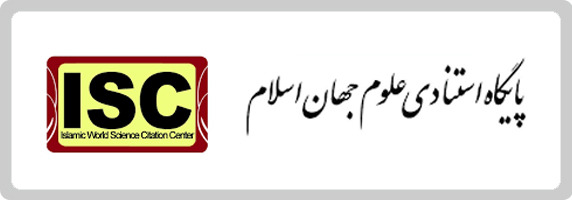Education as Dialogue: Reinterpreting Bakhtin's Thought in Pedagogy
Keywords:
Dialogism, Polyphony, Answerability, Dialogic Education, Bakhtinian TheoryAbstract
This article aims to reinterpret Mikhail Bakhtin’s core ideas on language, dialogue, and polyphony to explore their capacity to redefine education in the contemporary world. The study is a narrative-conceptual review conducted through descriptive analytical methodology. The sources include Bakhtin’s original works, critical interpretations of his theories, and applied studies in the field of education published between 2000 and 2025. The analysis was structured around interpreting key concepts within educational contexts. The findings reveal that concepts such as dialogism, polyphony, answerability, and carnivalization provide a robust theoretical and practical foundation for transforming educational systems. These notions reconceptualize classroom power structures and shift the roles of teachers and students from authority and passivity toward participatory, creative, and ethical relationships. The study also demonstrates the applicability of dialogic approaches to both teaching and assessment, particularly in language and humanities education. The article concludes that Bakhtin’s theoretical framework holds significant potential for renewing contemporary education. By moving beyond traditional and hierarchical models, it offers a pedagogical paradigm rooted in interaction, diversity, and the co-construction of meaning.
Downloads
References
Axt, M., & Axt, D. (2019). On the Ethical Responsible Act, Polyphony, and the Aesthetic Perspective in the Bakhtinian View: Approaches With the Law. Anamorphosis - Revista Internacional De Direito E Literatura, 5(2), 417-437. https://doi.org/10.21119/anamps.52.417-139
Cooren, F., & Sandler, S. (2014). Polyphony, Ventriloquism, and Constitution: In Dialogue With Bakhtin. Communication Theory, 24(3), 225-244. https://doi.org/10.1111/comt.12041
Cornish, R. (2022). Unsilenced Employee Voice in South Africa: Social Media Misconduct Dismissals as Evidence of E-Voice. Management revue, 33(3), 356-396. https://doi.org/10.5771/0935-9915-2022-3-356
Domalewska, D. (2024). Dezinformacja Jako Zagrożenie Dla Demokracji I Regulacje Prawne W Zakresie Jej Przeciwdziałania W Polsce I Wybranych Krajach Europejskich. Politeja, 21(5(92)), 359-379. https://doi.org/10.12797/politeja.21.2024.92.16
Emerson, C. (2019). Bakhtin’s Radiant Polyphonic Novel, Raskolnikov’s Perverse Dialogic World. 173-208. https://doi.org/10.1093/oso/9780190464011.003.0008
Liu, Y. (2023). Coronation and Coronation Removal: A Study on the Live-streaming Rollover by Her Highness Qiaobiluo Based on Bakhtin's Carnival Theory. Lecture Notes in Education Psychology and Public Media. https://doi.org/10.54254/2753-7048/2/2022350
Mikes‐Liu, K. (2025). Mikhail Bakhtin's Rabelais and His World: A Practitioner's Reading. Australian and New Zealand Journal of Family Therapy, 46(2). https://doi.org/10.1002/anzf.70003
Oliveira, M. G. d. (2004). Tema E Significação: Contribuições Bakhtinianas Para Análise Crítica Dos Processos Interativos Em Aulas De Leitura De Textos Shakespeareanos. Revista De Estudos Da Linguagem, 12(1), 115-132. https://doi.org/10.17851/2237-2083.12.1.115-132
Osovsky, O., Dubrovskaya, S. A., & Chernetsova, E. (2021). Social Education Through the Lens of Bakhtinian Theory. Dialogic Pedagogy a Journal for Studies of Dialogic Education, 9, R7-R16. https://doi.org/10.5195/dpj.2021.440
Rabatel, A. (2006). La Dialogisation Au Coeur Du Couple Polyphonie/Dialogisme chezBakhtine. Revue Romane Langue Et Littérature International Journal of Romance Languages and Literatures, 41(1), 55-80. https://doi.org/10.1111/j.1600-0811.2006.00043.x
Rodin, K. A. (2021). Bakhtin and Rene Girard on Dostoevsky: A Comparative Analysis. Rl(RL. 2021. vol. 2. no. 3), 42-51. https://doi.org/10.47850/rl.2021.2.3.42-51
Stone, J. (2008). Polyphony and the Atomic Age: Bakhtin's Assimilation of an Einsteinian Universe. Pmla, 123(2), 405-421. https://doi.org/10.1632/pmla.2008.123.2.405
Thai, P. V. A. (2020). Reflection on Dialogic Features in Vietnamese Novels of the Early 21st Century From Bakhtin’s Theory. Ued Journal of Social Sciences Humanities and Education, 10(Special), 12-18. https://doi.org/10.47393/jshe.v10ispecial.864
Tian, H., Hemchua, S., & Wang, Y. (2023). Dialogue in Lotman and Bakhtin: Implications for Foreign Language Education. Theory and Practice in Language Studies, 13(12), 3360-3369. https://doi.org/10.17507/tpls.1312.35
Trokhymchuk, O. (2018). Freud's Psychoanalytic Method in the Context of M. Bakhtin's Dialogue Philosophy: Literary Projection. Вісник Житомирського Державного Університету Імені Івана Франка Філологічні Науки(1(87)), 167-171. https://doi.org/10.35433/philology.1(87).2018.167-171
Xu, N., Chen, L., Yu, Z., & Zhu, X. (2022). An Epistemic Trend or a Digital Pitfall? De‑Westernizing Media and Communication Studies in Digital China. Galactica Media Journal of Media Studies, 4(4), 30-46. https://doi.org/10.46539/gmd.v4i4.288
Zhang, J., & Yu, H. (2020). Between Interpretation and the Subject: Revisiting Bakhtin’s Theory of Polyphony. Semiotica, 2021(238), 61-72. https://doi.org/10.1515/sem-2019-0086
Downloads
Published
Submitted
Revised
Accepted
Issue
Section
License
Copyright (c) 2025 بیژن بابائی (نویسنده); توکل دادرس (نویسنده مسئول)

This work is licensed under a Creative Commons Attribution-NonCommercial 4.0 International License.






